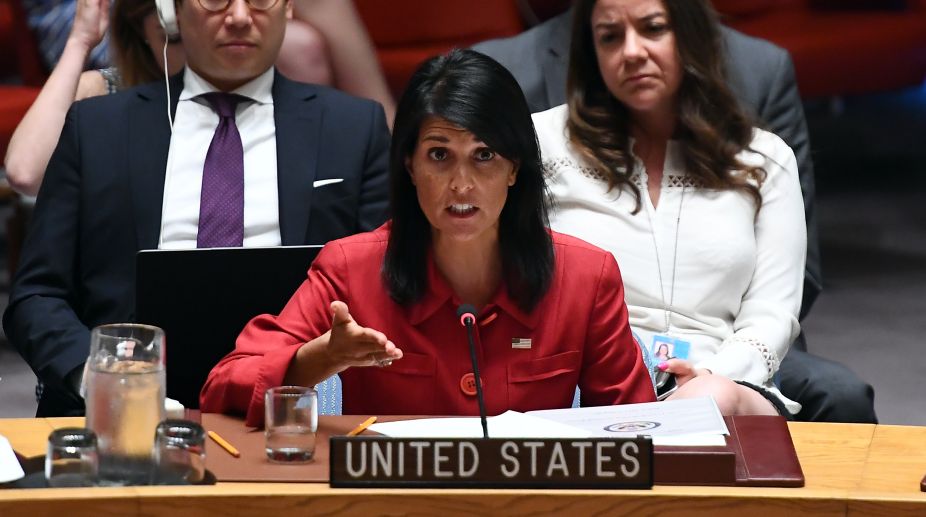Nature’s sting operation: Yellow fever unmasked
Yellow fever is a menacing disease which has caused the death of enormous numbers of people in the past.

US ambassador Nikki Haley (Photo: AFP)
US Ambassador Nikki Haley has sharply criticised African nations for their "collective failure" to respond to the threat of famine facing more than 14 million people and for nominating Congo for a seat on the UN's top human rights body despite its serious rights violations.
Haley said on Tuesday the looming famines in northeast Nigeria, Somalia and South Sudan are primarily caused by armed conflict and represent "a tragic example" of the failure of those governments to address the causes, and of the combatants to allow access to alleviate suffering.
Advertisement
She reiterated to a UN Security Council meeting on Africa that there is a critical relationship between human rights violations and conflict, and when African nations put forward a country like Congo for a seat on the Human Rights Council "it adds to the conflict."
Advertisement
The council voted in June to send international experts to look into abuses and killings in central Congo, where thousands of deaths and mutilations have been reported in recent months. Two UN experts were murdered in the area and dozens of mass graves have been discovered. Peaceful protesters have also been detained.
The United States is debating whether to pull out of the Geneva-based council and when Haley addressed its members in June she was highly critical of many members with poor human rights records.
"This is a pivotal time for the Human Rights Council," Haley said. "It has the potential to be an asset to the men, women and children suffering in Africa today but it can only play a role if its membership consists of nations committed to promoting and upholding universal human rights."
"That in turn depends on African states putting forward credible candidates with strong human rights records," she said. "The nomination of (Congo) is an inexcusable failure of this process."
As for famine in Africa, Haley said the United States has committed $1.4 billion to help those threatened with starvation in fiscal 2017, and she thanked other donors and countries including Uganda for hosting millions fleeing conflict and needing food.
"Famine in Africa is an issue of peace and security," she said. "People are dying of hunger, not due to acts of God but acts of man."
In Somalia, Haley said, more than half the population is in need of humanitarian assistance but attacks by al-Shabab extremists linked to al Qaida, and logistical and administrative obstacles are cutting off access to hard-hit rural areas.
She said efforts to help millions suffering from the man-made crisis in South Sudan, which has created the largest number of refugees in Africa since the 1994 Rwanda genocide, "are being actively obstructed by the government and other parties."
"These famines are a sign of a collective failure, and any effective response must begin with the nations of Africa themselves," Haley said. "African Union member states must ramp up their response to this crisis."
But she warned that progress toward peace and security in Africa "cannot be achieved unless the efforts of the United Nations and others are accompanied by accountability on the parts of governments involved in conflict."
Advertisement